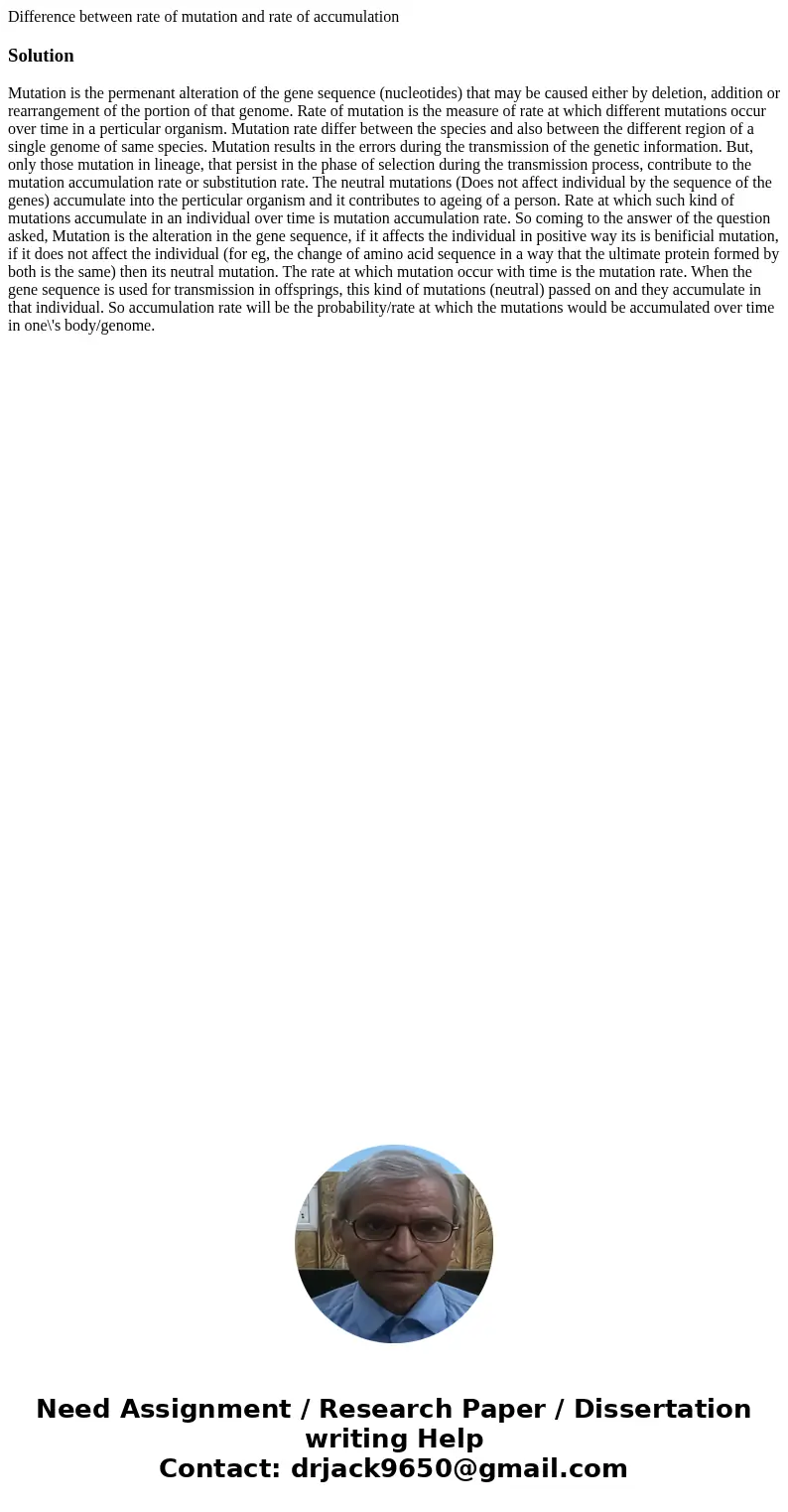Difference between rate of mutation and rate of accumulation
Difference between rate of mutation and rate of accumulation
Solution
Mutation is the permenant alteration of the gene sequence (nucleotides) that may be caused either by deletion, addition or rearrangement of the portion of that genome. Rate of mutation is the measure of rate at which different mutations occur over time in a perticular organism. Mutation rate differ between the species and also between the different region of a single genome of same species. Mutation results in the errors during the transmission of the genetic information. But, only those mutation in lineage, that persist in the phase of selection during the transmission process, contribute to the mutation accumulation rate or substitution rate. The neutral mutations (Does not affect individual by the sequence of the genes) accumulate into the perticular organism and it contributes to ageing of a person. Rate at which such kind of mutations accumulate in an individual over time is mutation accumulation rate. So coming to the answer of the question asked, Mutation is the alteration in the gene sequence, if it affects the individual in positive way its is benificial mutation, if it does not affect the individual (for eg, the change of amino acid sequence in a way that the ultimate protein formed by both is the same) then its neutral mutation. The rate at which mutation occur with time is the mutation rate. When the gene sequence is used for transmission in offsprings, this kind of mutations (neutral) passed on and they accumulate in that individual. So accumulation rate will be the probability/rate at which the mutations would be accumulated over time in one\'s body/genome.
 Homework Sourse
Homework Sourse